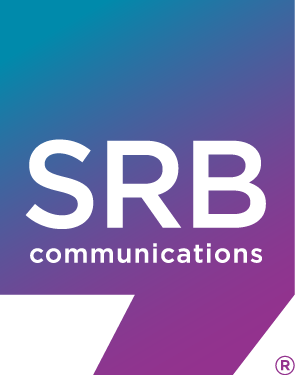News & Insights
Stand up for diversity and inclusion on World Press Freedom Day
May 3rd is the United Nations’ 30th annual World Press Freedom Day and an opportunity for a shoutout to multicultural journalism.
SRB Communications specializes in multicultural marketing. We champion this slice of the media world at every opportunity. We cultivate relationships with multicultural media, especially in Washington, D.C. and the mid-Atlantic region, which help us negotiate attractive advertising rates for our clients. Businesses simply can’t reach multicultural audiences if they don’t advertise in outlets that those potential customers read or listen to.
Why? Human nature is one explanation. People pay more attention to media that speaks to their interests, shows images of people like them, is visible in their communities and advocates on their behalf.
Black media has been doing all that since 1827 when John B. Russwurm and Samuel Cornish started Freedom’s Journal in New York City, this country’s first Black-owned and operated newspaper. In modern times, Black media has challenged racism and injustice, celebrated Black Americans’ achievements, promoted their culture, spurred their activism and elevated their pride.
More recently, the pandemic spotlighted multicultural media’s importance as a trustworthy source of information to minority communities in times of crisis.
One of our clients discussed this recently with four excellent multicultural journalists during a webinar for a marketing campaign that we are working on with our client Howard University and the CDC Foundation.
Project REFOCUS, seeks to address and prevent COVID-19 related social stigma among historically marginalized, racial and vulnerable populations. The goal is to explore opportunities for the creation or expansion of surveillance systems and social listening protocols that would effectively monitor in real time the impacts of social stigma on populations. SRB created and failitated four webinars this year for Project REFOCUS, all of which are available now on the project’s YouTube Channel.
The webinar in February explored two of multicultural media’s vital roles in health crises. One is delivering solid information to minority readers who ignore, and are too often ignored by, mainstream media. The other is speaking for their readers, giving voice to the voiceless as it were, by telling their stories and bringing their concerns to the authorities’ attention.
The four journalists on the panel were Cheryl Smith, publisher and editor of Texas Metro News; Micha Green, managing editor of the Washington Informer; Siobhan Riley, anchor and reporter for Spectrum News and David Cordaro Mercado, a multimedia and investigative journalist based in Puerto Rico. They spoke passionately about the importance of telling their communities’ stories and providing truthful information.
The pandemic “has opened the door for more stories about diversity and inclusion,” said Riley, whose beat is diversity and inclusion. “I’ve found that when you find their stories, that’s how you help people in communities where they may be distrust.”
Finding those important stories requires a lot of listening, Green pointed out. “Sometimes it takes talking to people for a half hour, an hour or two before you get that nugget that is the true story,” said Green. “Listening to our community, knowing their needs, often gets to that ultimate goal of bridging the gap.”
That’s the essence of what we’ll be celebrating on World Press Freedom Day.



